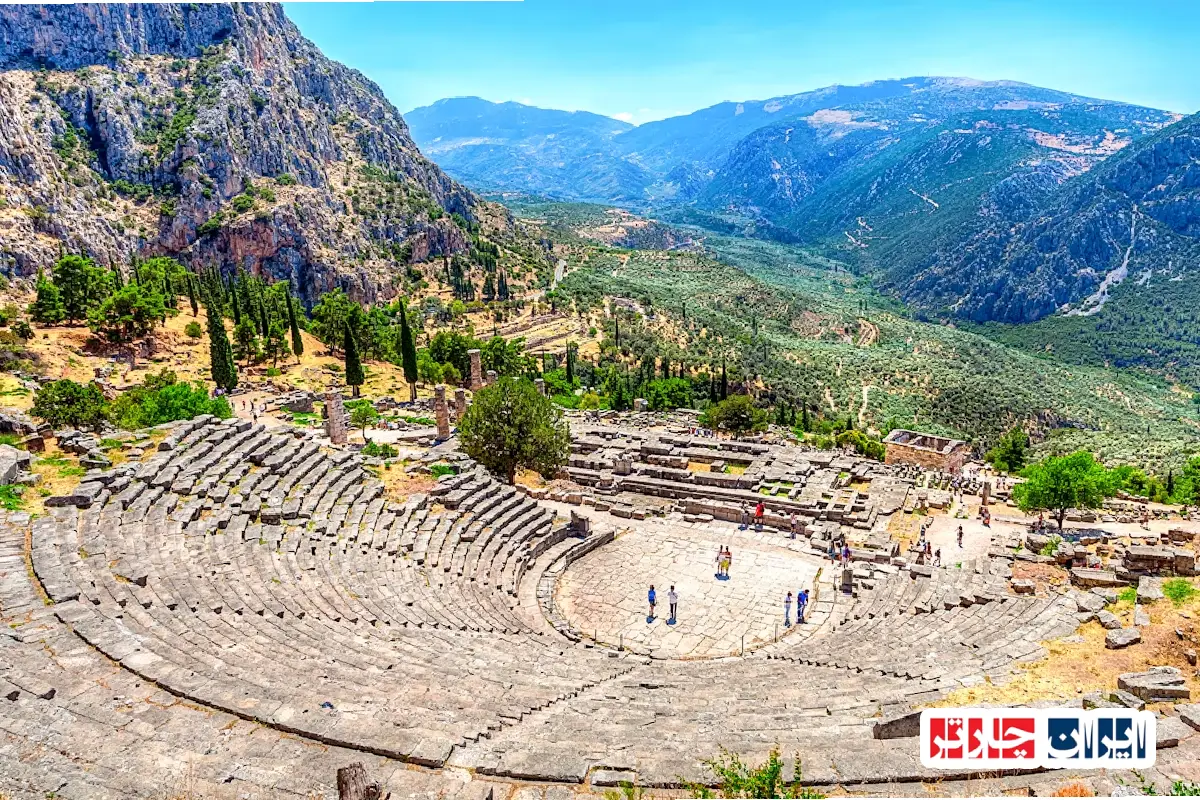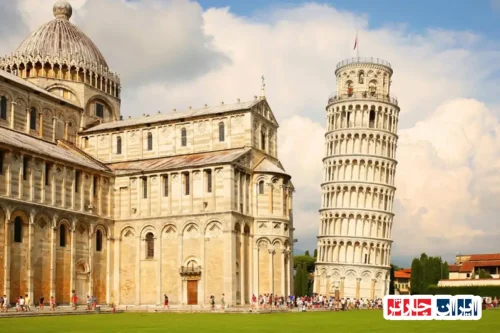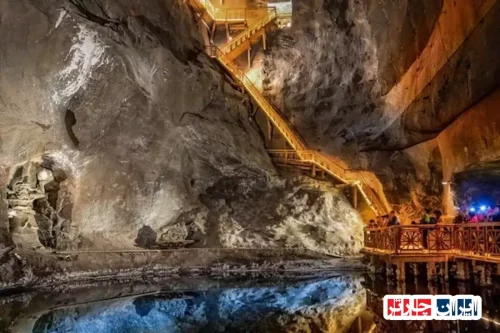Delphi Theatre Delphi Greece: Discover the Ancient Marvel of Greece’s Cultural Heritage
Delphi Theatre Delphi Greece stands as a testament to the grandeur of ancient Greek architecture and cultural achievements. Nestled within the archaeological site of Delphi, this historic amphitheater offers visitors a unique glimpse into the theatrical and religious practices of antiquity. The theatre’s strategic location, overlooking the majestic landscape of Greece, not only provided an ideal setting for performances and ceremonies but also contributed to the spiritual ambiance that has captivated travelers for centuries. The structure, built with meticulous craftsmanship, features semi-circular seating arrangements that could accommodate thousands of spectators, making it one of the most significant venues of its kind in the ancient world. Its design reflects advanced engineering skills, with acoustics and sightlines optimized for performances, ensuring that every audience member experienced the event vividly. Today, Delphi Theatre Delphi Greece continues to inspire awe, serving as a symbol of Greece’s rich cultural legacy and its influence on the development of performing arts across the globe. Visitors can explore the ruins and imagine the grandeur of ancient festivals, where art, religion, and community converged in a celebration of human creativity and divine reverence. The site’s preservation allows us to connect with the past, understanding how the ancient Greeks used theatre not only for entertainment but also as a means of religious expression and social cohesion. As a UNESCO World Heritage site, Delphi Theatre Delphi Greece remains a vital part of world heritage, inviting all to witness the enduring power of ancient Greek innovation and artistry.
For more information about visiting this historic site, explore the Delphi Theatre-Iran Charter and discover how to experience the beauty and history of Greece’s cultural treasures firsthand. Whether you are an enthusiast of ancient history, architecture, or performing arts, Delphi Theatre Delphi Greece offers an unforgettable journey into the heart of classical civilization. Plan your visit to immerse yourself in the stories of gods and heroes, and witness the enduring legacy of Greek ingenuity that continues to influence modern culture worldwide.
The Historical Significance and Architectural Marvels of Delphi Theatre in Greece
Delphi Theatre, known as Delphi Greece’s iconic ancient amphitheatre, stands as a testament to the grandeur of Greek architecture and cultural heritage. This historic site, dating back thousands of years, showcases the skill and artistry of ancient Greek builders who designed a structure that seamlessly blends functionality with aesthetic beauty. The theatre’s strategic location on the slopes of Mount Parnassus offers breathtaking views of the surrounding landscape, enhancing the experience of visitors and performers alike. Its construction features impressive stonework, tiered seating capable of accommodating thousands, and acoustics that still impress modern engineers. As a symbol of Greece’s rich history, Delphi Theatre continues to attract scholars and tourists eager to explore its enduring legacy. The site’s preservation efforts ensure that future generations can appreciate the architectural ingenuity and cultural importance of this ancient monument.
Role of Delphi Theatre in Ancient Greek Religious Festivals and Cultural Events
In ancient times, Delphi Theatre was the central venue for major religious festivals and cultural celebrations in Greece. It hosted the famous Pythian Games, held every four years in honor of Apollo, which included athletic competitions, musical contests, and theatrical performances. These festivals served as a unifying event for Greek city-states, fostering a sense of shared identity and spiritual devotion. The theatre’s design allowed for large audiences to witness performances that combined entertainment with religious rituals, reinforcing the divine connection of the events. The performances often depicted mythological stories, heroic deeds, and moral lessons, reflecting the values of ancient Greek society. Today, the site’s historical significance as a religious and cultural hub continues to be celebrated through archaeological research and cultural reenactments, offering insight into Greece’s vibrant past.
Architectural Features and Innovations of Delphi Theatre in Ancient Greece
Delphi Theatre exemplifies innovative Greek architecture, combining aesthetic elegance with acoustic excellence. Its semi-circular design maximizes sound projection, allowing audiences to hear performances clearly from any seat. The tiered seating, carved from local stone, demonstrates advanced engineering techniques, ensuring durability and comfort. Notable features include the orchestra area, where performances and rituals took place, and the skene, a backdrop structure that enhanced theatrical presentations. The theatre’s integration with the natural landscape highlights Greek mastery in harmonizing architecture with environment. Its structural elements influenced subsequent theatre designs across Greece and beyond, setting standards for acoustics, sightlines, and audience capacity. Preservation of these architectural innovations provides valuable insights into ancient Greek engineering and cultural priorities.

Legendary Performances and Mystical Stories Associated with Delphi Theatre
Throughout history, numerous legendary performances and mystical tales have been linked to Delphi Theatre. It is said that performances in this sacred space were believed to be divinely inspired, with some stories suggesting that the gods themselves influenced the actors and playwrights. One famous myth recounts that the theatre was a place where oracles delivered divine messages, and theatrical acts served as a medium for communicating with the divine realm. Tales of secret rituals and hidden symbols embedded in the performances add an aura of mystery to the site. These stories reflect the deep spiritual connection ancient Greeks felt with their gods and the belief that theatre was a sacred act. Modern visitors and researchers continue to be fascinated by these legends, which contribute to the theatre’s legendary status in cultural history.
Delphi Theatre’s Influence on the Development of Greek Drama and Performing Arts
Delphi Theatre played a pivotal role in shaping the evolution of Greek drama and performing arts. Its advanced acoustics and design allowed for elaborate theatrical productions that set standards for storytelling, acting, and stagecraft. The performances often drew from mythological themes, emphasizing moral lessons and societal values, which became foundational elements of Greek tragedy and comedy. The theatre’s capacity to host large audiences fostered the development of complex theatrical scripts and innovative staging techniques. Over centuries, the influence of Delphi Theatre extended beyond Greece, inspiring the architecture and dramaturgy of theatres across the Mediterranean and Europe. Today, the legacy of Greek drama, rooted in sites like Delphi, continues to influence modern theatre, film, and performance arts worldwide.
The Natural Environment Surrounding Delphi Theatre and Its Impact on Performances
The natural landscape surrounding Delphi Theatre significantly enhanced the theatrical experience. Nestled amidst lush greenery and overlooking the valley below, the theatre’s open-air design allowed performers to utilize the natural acoustics and scenery to elevate their acts. The mountain air and panoramic views created an inspiring atmosphere, connecting audiences with nature and spirituality. This harmony between architecture and environment exemplifies Greek mastery in integrating natural elements into cultural spaces. The scenic backdrop also served as a visual storytelling element, complementing the themes of myth and legend portrayed on stage. Modern visitors often remark that the setting adds a mystical quality to their experience, making each performance or visit uniquely memorable. The environment’s influence underscores the importance of location in the cultural and spiritual significance of Delphi Theatre.
Global Heritage and UNESCO Recognition of Delphi Theatre
Recognized as a UNESCO World Heritage Site, Delphi Theatre is celebrated globally for its cultural and historical significance. Its designation underscores the importance of preserving this ancient marvel for future generations. The site’s influence extends beyond Greece, symbolizing the universal values of artistic expression, spiritual devotion, and architectural innovation. International efforts focus on conservation, archaeological research, and promoting cultural tourism, ensuring the theatre’s legacy endures. The recognition also highlights the importance of protecting other ancient sites that share similar historical and cultural attributes. Visitors from around the world come to Delphi to witness this extraordinary monument, experiencing firsthand the enduring power of Greek heritage and its contribution to world civilization.
Hidden Architectural Secrets and Mysteries of Delphi Theatre
Despite extensive research, some aspects of Delphi Theatre’s construction and purpose remain shrouded in mystery. Scholars continue to explore hidden chambers, ancient tools, and symbols that may reveal new insights into its original design and use. Certain structural features suggest the existence of secret passageways or ritual spaces used during religious ceremonies. The precise methods used to achieve optimal acoustics and durability are still studied, offering clues about ancient Greek engineering mastery. These mysteries add to the allure of Delphi Theatre, inspiring ongoing archaeological investigations and scholarly debates. Preserving these secrets is vital for understanding the full scope of Greece’s cultural and technological achievements during antiquity.
Contemporary Restoration and Preservation Efforts at Delphi Theatre
Modern restoration projects aim to safeguard Delphi Theatre’s structural integrity and historical authenticity. Experts utilize advanced technology, including 3D scanning and material analysis, to guide careful conservation work. These efforts focus on stabilizing the stonework, restoring damaged sections, and preventing further deterioration caused by weather and tourism. Public awareness campaigns emphasize the importance of responsible visitation to protect this fragile heritage. Ongoing research ensures that restoration aligns with the original architectural intent, maintaining the site’s authenticity. Such initiatives demonstrate a global commitment to preserving Greece’s ancient treasures, allowing future generations to experience the grandeur of Delphi Theatre firsthand and continue to learn from its timeless legacy.

FAQ about Delphi Theatre in Greece
- What is the historical significance of Delphi Theatre?
- Delphi Theatre is a symbol of ancient Greek cultural heritage, showcasing remarkable architecture and serving as a central site for religious festivals like the Pythian Games. Its construction reflects the advanced engineering skills of the Greeks, and it has played a vital role in preserving Greece’s historical legacy for thousands of years.
- Where is Delphi Theatre located?
- Delphi Theatre is situated on the slopes of Mount Parnassus in Greece, offering stunning views of the surrounding landscape and integrating seamlessly with the natural environment.
- What are the main architectural features of Delphi Theatre?
- The theatre features a semi-circular design with tiered seating carved from local stone, an orchestra area for performances, and a skene backdrop. Its construction demonstrates advanced Greek engineering and acoustics, allowing sound to travel clearly across the space.
- How did Delphi Theatre contribute to ancient Greek festivals?
- It was the main venue for religious festivals such as the Pythian Games, where athletic, musical, and theatrical competitions took place. These events fostered unity among Greek city-states and honored gods like Apollo.
- What legendary performances are associated with Delphi Theatre?
- Many myths speak of divine inspiration during performances, with stories suggesting gods influenced actors and playwrights. The theatre was also believed to be a place where oracles delivered divine messages, adding a mystical aura to its performances.
- How did Delphi Theatre influence Greek drama?
- The theatre’s design and acoustics set standards for theatrical productions, inspiring the development of Greek tragedy and comedy. Its capacity and staging techniques influenced theatre architecture across the Mediterranean.
- What role does the natural environment play in the theatre’s ambiance?
- The surrounding lush landscape and panoramic views enhance performances, creating a spiritual and inspiring atmosphere. The natural acoustics and scenery complement the mythological themes portrayed on stage.
- Is Delphi Theatre recognized as a UNESCO World Heritage Site?
- Yes, it is designated as a UNESCO World Heritage Site, highlighting its global cultural and historical importance and emphasizing the need for preservation efforts.
- Are there any mysteries or secrets about Delphi Theatre?
- Some structural features suggest hidden chambers or secret passageways used during rituals. Ongoing research continues to explore these mysteries, revealing new insights into ancient Greek engineering and religious practices.
- What restoration efforts are currently underway at Delphi Theatre?
- Modern conservation projects utilize advanced technologies like 3D scanning to stabilize and restore the structure, ensuring its preservation for future generations while maintaining its authenticity.
- How does the surrounding landscape impact performances today?
- The natural setting provides a unique open-air experience, with the mountain air and scenic views adding to the mystical atmosphere, making each visit memorable.
- What is the significance of Delphi Theatre in modern times?
- As a UNESCO site, it symbolizes the enduring legacy of Greek culture, inspiring archaeological research, cultural tourism, and the appreciation of ancient architecture worldwide.
- How do visitors experience Delphi Theatre today?
- Visitors explore the well-preserved ruins, enjoy the panoramic views, and learn about its history through guided tours and exhibitions, connecting with Greece’s rich cultural heritage.
- What are the main challenges in preserving Delphi Theatre?
- Weathering, tourism, and natural deterioration pose ongoing threats. Conservation efforts focus on protecting the stonework and preventing further damage through advanced restoration techniques.
- Why is Delphi Theatre considered an architectural marvel?
- Its harmonious integration with the landscape, innovative acoustics, and durable stone construction exemplify Greek engineering mastery, influencing theatre design for centuries.
























